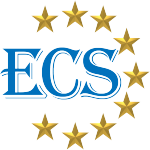About ECS
This is a 3-year Bachelors level course in Computer Science for students who wish to study in 2 different countries. Successful candidates receive a double degree award. The aim is to prepare students for leading roles in the development of the international computer systems required in modern Europe.
The participating institutions are universities/polytechnics in Finland (Turku), France (Blois and Metz), Germany (Hamburg), Portugal (Coimbra), Spain (Burgos), Romania (Timisoara) and Italy (Venice). Each institution has strong links with industry. Each location has a strong regional culture as well as a lively student social scene. There is plenty of opportunity for students to learn about cultural differences in different regions in Europe.
Although the aim of the Network is to provide double degree opportunities, there are certain national limitations and constraints that shall be noted before applying to the program. The summary of these limitations is presented in the table below. Please check the partner institution descriptions for more details.
| Partner University | Double degree possibility |
| Université François Rabelais de Tours – Blois | Yes |
| Universidad de Burgos |
|
| Instituto Politécnico de Coimbra | Yes, but possibly not for students starting 2018 or later |
| Hamburg University of Applied Sciences | Yes |
| Université de Lorraine – Metz | Yes |
| West University of Timisoara | Yes |
| Turku University of Applied Sciences | Yes, but only after 4 years (240 ECTS) including 30 ECTS work placement |
| Universita Ca’ Foscari of Venice | Yes |
Each institution provides essentially the same course over the first two years. A common core has been designed to ensure that students can move easily from country to country. The core components include: object-oriented programming, object-oriented modelling and abstraction, procedural programming, databases, computer architecture and operating systems, networks, software project management, mathematics, context of computer use and the European context. Familiarity with the latest international communication systems is encouraged.
Students study in their native language and one foreign languages. Students will be assessed for language competence at the start of the course and before they can progress to the other countries for study. Foreign language teaching is an integral part of the course, to bring foreign language skills up to the level required to study in the other countries. Students choose their foreign languages out of English, French, German, Portuguese, Spanish, and Italian.
| Core Module | CP | Content |
| Programming | ≥ 20 | Procedural programming: Data types, algorithms and data structures, program organisation (control structures, functions, …) program design & testing
Object oriented: introduction to OO concepts (classes, objects, inheritance, encapsulation, polymorphism), OO language (C++ / Java/…), multithreaded programs Algorithms and data structures: lists, trees, search algorithms |
| Software Engineering and Project Management | ≥ 10 | Analysis and design methods, design patterns, design languages (UML, …), software lifecycle models, project organisation, quality management, methodology (prototyping, reusability, …) |
| Information Systems | ≥ 5 | Database systems: DB models, ER-model, DB design, relational DBMS, DB languages (SQL, …), recovery, concurrency, integrity
Knowledge management: optional |
| Computer Networks | ≥ 5 | ISO layer model, internet protocol, data compression, cryptography, security, LAN |
| Computer Architecture and Operating Systems | ≥ 10 | Computer design (processor architectures, IO, memory hierarchy, …), processes (synchronisation, deadlock prevention, process management & communication), OS types (real-time, client-server, multi-user, …), system administration (unix/windows) |
| Mathematics and Computer Science Theory | ≥ 13 | Mathematics: Functions, differentiation and integration, interpolation, series, information coding, numerical methods, stochastics, graphs, set theory, probability
Theory: formal languages, automata (optional) |
| Computer Science Application | ≥ 5 | Economics, business application, technical application, … |
| Special Computer Science Topics | ≤ 32 ! | |
| European Languages, Culture and Communication | ≥ 20 | English, French, German, Spanish, Portuguese
Special topics with European content, presentation |
In the third and final year, students are able to take advantage of the different specialisations available in each country, as well as enhancing their core computing skills.
There is emphasis on applying academic knowledge to real world problems. Students carry out large-scale projects and will partially work in industry. In this course, students are expected to demonstrate both individual expertise and the ability to perform well as a member of a group. Groups are formed as international teams with members drawn from different participating institutes.
The specialisations include: Artificial Intelligence, Business Enterprise and Internet Systems, Human-computer Interaction, Technical Computer Science, Knowledge Discovery in Databases/Network Security and Administration, Database Applications, Embedded SW and DSP, Electronic Business and Mobility, AI Agent Based Approach, and Web Interfaces and Web Software Tecnologies. For the actual list of specialisations, please look at the web pages of the partner institutions.
ENTRY REQUIREMENTS
The applicants must meet the normal entry requirements of the home institution, and provide evidence of ability to develop necessary foreign language skills.


